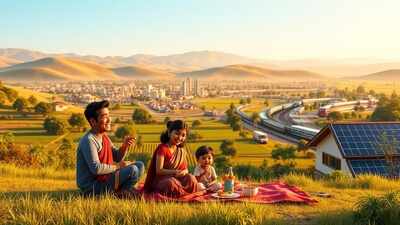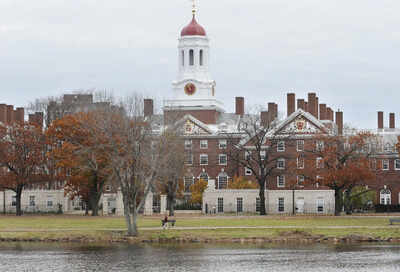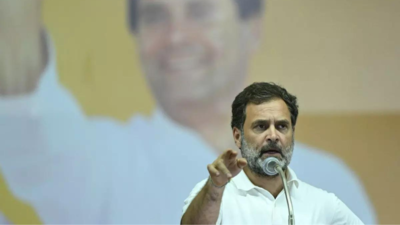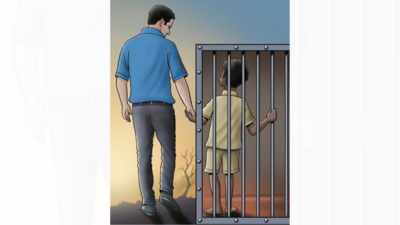Trump nominated for 2026 Nobel Peace Prize by Pakistan: Last 10 winners every student must know about
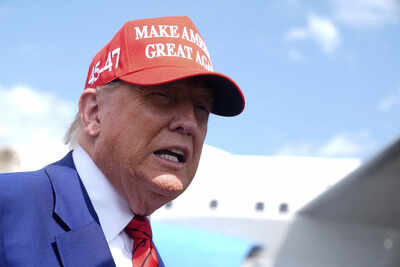
In a move that is bound to generate global debate, Pakistan has officially nominated the U.S. President Donald Trump for the 2026 Nobel Peace Prize. The nomination cites his “decisive diplomatic intervention” during the May 2025 India–Pakistan military standoff—a crisis that brought both countries to the brink of conflict before a sudden de-escalation.While some may see this as a bold recognition of diplomacy, others could argue it’s a controversial move given Trump’s polarizing global reputation. Regardless of where one stands, the nomination has renewed public interest in one of the world’s most prestigious honors—the Nobel Peace Prize.For students navigating a world full of crises, activism, and digital noise, it’s worth asking: What does it really take to win a Peace Prize? The answer lies in looking back at the past ten years. From survivors to presidents, from journalists to civil society groups, these recipients remind us that peace comes in many forms—and that meaningful impact doesn’t always come from the spotlight.
Nihon Hidankyo (2024)
In 2024, the Nobel Peace Prize was awarded to Nihon Hidankyo, the Japan-based confederation of atomic bomb survivors. For decades, they have advocated for the global elimination of nuclear weapons. Many members are survivors of the bombings of Hiroshima and Nagasaki and have spent their lives sharing painful personal testimonies in hopes of preventing future nuclear warfare. Their recognition highlighted the power of memory and moral witness, especially in an age where military tensions continue to rise.
Narges Mohammadi (2023)
Narges Mohammadi, an Iranian journalist and human rights activist, received the award in 2023. Known for her defiance in the face of imprisonment and censorship, Mohammadi has been a leading voice in Iran’s fight for women’s rights, democracy, and civil liberties. Her activism became globally visible during the 2022 protests following the death of Mahsa Amini. Despite being incarcerated, she continued to write and advocate, becoming a symbol of hope and resistance for student and youth-led movements across the world.
Ales Bialiatski, Memorial, and the Center for Civil Liberties (2022)
In 2022, the prize was jointly awarded to Ales Bialiatski, the Russian human rights organization Memorial, and the Ukrainian Center for Civil Liberties. Bialiatski, a Belarusian activist, has been imprisoned for documenting state abuses. Memorial, once Russia’s leading memory and human rights archive, was shut down by Russian authorities for exposing historical and modern-day repression. The Ukrainian organization, meanwhile, gained global attention for its role in documenting war crimes during the Russia–Ukraine conflict. Together, these three laureates represented civil society’s strength in resisting authoritarianism.
Maria Ressa and Dmitry Muratov (2021)
The 2021 Nobel Peace Prize recognized Maria Ressa from the Philippines and Dmitry Muratov from Russia for their fearless defense of press freedom. Ressa, co-founder of the digital news outlet Rappler, has faced repeated arrests for her investigative reporting on disinformation and authoritarian practices under the Duterte regime. Muratov, editor-in-chief of Novaya Gazeta, leads one of Russia’s last independent newspapers and has seen colleagues assassinated for their work. Their win underscored the critical role of journalism in protecting democracy.
World Food Programme (2020)
In 2020, the Nobel Peace Prize went to the World Food Programme (WFP), the United Nations agency that works to combat global hunger. With operations in dozens of conflict zones, WFP has long been at the forefront of delivering life-saving food aid to vulnerable populations. The committee praised its efforts to prevent hunger from being used as a weapon of war and its work in building the foundations for peace by stabilizing food security in crisis-affected areas.
Abiy Ahmed (2019)
Ethiopian Prime Minister Abiy Ahmed was awarded the prize in 2019 for his role in ending a 20-year conflict with neighboring Eritrea. The peace deal, signed soon after he came to power, was celebrated internationally as a historic achievement. However, his tenure would later become more controversial due to internal conflicts, especially in the Tigray region, where human rights abuses have been reported. Still, his initial efforts at diplomacy earned him global recognition for peacemaking.
Denis Mukwege and Nadia Murad (2018)
In 2018, the prize went to Congolese doctor Denis Mukwege and Yazidi activist Nadia Murad for their work addressing sexual violence in armed conflict. Mukwege has spent his life treating survivors of rape in the Democratic Republic of Congo, running a hospital where thousands of women have found medical and emotional care. Murad, a survivor of ISIS captivity, became a global advocate after escaping and speaking out about the atrocities committed against Yazidi women. Their win emphasized that peace also means justice and healing for survivors.
International Campaign to Abolish Nuclear Weapons (2017)
The 2017 laureate, ICAN, played a pivotal role in the adoption of the United Nations Treaty on the Prohibition of Nuclear Weapons. As a coalition of NGOs, the campaign mobilized grassroots support and pressured global leaders to recognize the humanitarian consequences of nuclear arms. ICAN’s success showed how organized civil activism, including that led by students and young people, could shape international treaties and policy.
Juan Manuel Santos (2016)
Juan Manuel Santos, then-president of Colombia, was honored in 2016 for his efforts to end the country’s decades-long civil war with the FARC guerrillas. His peace agreement—though narrowly rejected in a public referendum—was ultimately revised and implemented. Santos took political risks to push reconciliation forward, believing that no peace is perfect but that peace is always preferable to continued war. His leadership demonstrated the complexities and patience required for lasting peace.
National Dialogue Quartet (2015)
In 2015, the award went to Tunisia’s National Dialogue Quartet, a coalition of four civil society organizations that helped steer the country through the political crisis following the Arab Spring. When Tunisia’s fragile democratic transition nearly collapsed, this quartet stepped in to mediate between opposing factions, preventing violence and ensuring that the constitution-building process stayed on track. Their example highlighted the quiet but crucial role of civil dialogue in preserving democratic gains.
